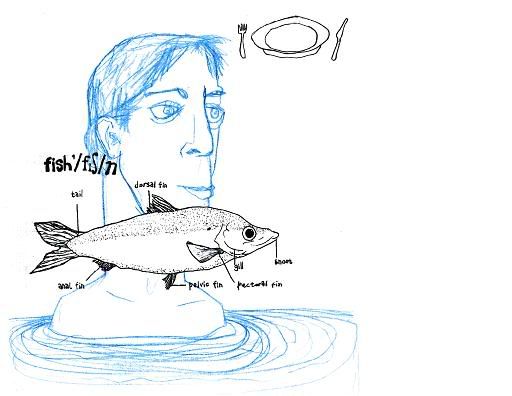A true story about exposition
The sidewalks of my childhood street under my childhood house in Israel were being repaved by a sole city worker on a hot summer afternoon back when I was ten or eleven years old. I walked out wearing one of my childhood ice-cream colored t-shirts stuffed into the ridiculous shorts my mother used to buy me and saw a fresh slab of wet concrete at my feet. Thrilled by the opportunity presented to me, I grabbed a stick and started making my mark on the world. All I could think of was to write my name and the day’s date over and over again.
My outburst of history-making was cut short by shouts from down the street. The worker had spotted me from afar and was crying for me to stop. “Why?! Why are doing that!?” He screamed and ran towards me. I jumped up and escaped back into the house.
I couldn’t stay away for long. The thought of that man wiping away my name with his spatula was painful. I had to go see it for myself. I stepped out and there he was, on his knees, erasing my mark just as I’d feared. It was done. He looked up and shook his head at me. This look of contempt was much worse than the yelling. He asked “Why?” again, wearily. I said “It wasn’t me. It was my brother. My twin brother.” Of course we both knew I didn’t have a twin brother. I hadn’t even bothered to change my pastel clothes. I’m not sure why I bothered with that flimsy lie. He shook his head and looked back down.
I felt so incredibly ashamed. The feeling echoed within me for years. That summer afternoon remains one of the few clear memories I have of my childhood, as if it was some sort of traumatic experience and not the negligible, muted little moment that it obviously was. Then again, all guilt aside, this subdued yet poorly handled confrontation does neatly wrap my entire essence into itself: I’ve always wanted, more than anything, to etch my name into the world, and I’ve always been prepared and willing to lie to get there.
My outburst of history-making was cut short by shouts from down the street. The worker had spotted me from afar and was crying for me to stop. “Why?! Why are doing that!?” He screamed and ran towards me. I jumped up and escaped back into the house.
I couldn’t stay away for long. The thought of that man wiping away my name with his spatula was painful. I had to go see it for myself. I stepped out and there he was, on his knees, erasing my mark just as I’d feared. It was done. He looked up and shook his head at me. This look of contempt was much worse than the yelling. He asked “Why?” again, wearily. I said “It wasn’t me. It was my brother. My twin brother.” Of course we both knew I didn’t have a twin brother. I hadn’t even bothered to change my pastel clothes. I’m not sure why I bothered with that flimsy lie. He shook his head and looked back down.
I felt so incredibly ashamed. The feeling echoed within me for years. That summer afternoon remains one of the few clear memories I have of my childhood, as if it was some sort of traumatic experience and not the negligible, muted little moment that it obviously was. Then again, all guilt aside, this subdued yet poorly handled confrontation does neatly wrap my entire essence into itself: I’ve always wanted, more than anything, to etch my name into the world, and I’ve always been prepared and willing to lie to get there.


1 Comments:
At 12:43 AM, MD said…
MD said…
Sounds like a great prologue to an underlying theme in a bigger story. I'm intrigued to know more about the lengths you went to make your mark in the world and the desire that was so great it lead you to lie to get there.
Post a Comment
<< Home